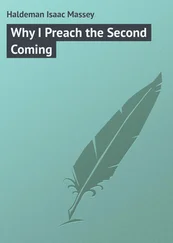“I look like old butter?”
She kisses my chin.
“Sorry, but in certain light, yes.”
“I don’t need to listen to this shit. I could be in a real bed. Alone. Unharassed.”
“Why did you come here?”
“It seemed like a good idea at the time.”
“What?”
“To come and save all the dark babies.”
“Come here, Teacher.”
“You come here, Teacher.”
“Tell me more about Snowy Pinkus.”
“Rainy.”
“Snowy’s a bitch.”
Our legs are twined up. She’s still holding the hunk of cheese.
Iwant to spit on her,” she says.
“On who?”
“Grieta.”
“Why?”
“You’re asking me why?”
“I’m asking you why.”
“Listen. I heard this story about them once. A train of ox wagons are crossing the Kalahari from the Free State. The great trek to unknown parts. It’s their second day without water. They’re wandering trackless. A baby dies. There’s no time to stop, and so the father of the baby tosses it out in the veld — not because he’s cruel, but because he wants to save his other children and there’s no time. But the mother won’t have this. She leaps out for her dead child. So they stop, outspan long enough to dig a small hole and say Our Father. But before they can move on, another child dies, and so they do it again. Our Father . This land beat the Boers into natives, didn’t it?”
“Sounds like it.”
“But when they saw us, they didn’t see themselves.”
“So spit, or not?”
“I say spit.”
“What about us?”
“Us what?”
“Us this. Here. This isn’t desecration?”
“This is nothing, darling.”
And she rolled away from me into the grooves of hot sand, her body wearing it.
Look at me. Tell me what you see.”
“Can you flare your nostrils like that on demand? I’ve always —”
“You mean you can’t? It’s easy, just —”
“I’m trying, I’m trying.”
“Shhh. Be quiet and look at me.”
Her nails dig into my arm, painted pink death—“Look.”
Instead I go closer to her and she blurs, closer until our faces crash.
And Mavala stands and marches away: marching, swinging her arms, her knees like levers, heading farther into the veld, shedding everything, blouse, necklace, strap-tangled bra, skirt — all in puddled clumps off the goat path, into the trackless veld, heading for the C-32, across a river of sand, not stopping, me chasing and picking up clothes, her not looking back, shouting, “Leper! Make way! Leper!”
Namibia never made the BBC. What would they have said? Nothing much raged again today across newly independent … So we had to be content with Angola or South Africa news, both of which were consistently bloody enough to make the radio.
One night, I dreamed I heard on the BBC that Jonas Savimbi was assassinated, blown up by a hand grenade. The next morning, I trumpeted it around school: “Savimbi’s dead!”
“How do you know?”
“I heard it last night on the BBC.”
Hallelujah, the BBC. The BBC! Could the sun rise without the BBC? The earth rotate? The tides roll in? The tides recede?
Mavala shouted from her classroom: “Finally, that Bantustan got what he deserved!”
“The war will be over up there,” Pohamba said.
“And now our illegal nomads will go home,” Vilho said.
That night we gathered at Antoinette and Obadiah’s and waited. Obadiah was soaking his feet in water and salt. He said his feet had the hardness. Beep, beep, beep. BBC News. Thirteen hours Greenwich mean time. The main points read by Wynford Vaughn-Thomas: In the Slovenian capital, Ljubljana, federal troops clashed with demonstrators demanding an independent Slovenian state for a second straight day… In Angola, UNITA rebel leader Dr. Jonas Savimbi has again failed to honor the cease-fire, and his men are reportedly on the march toward Huambo. The Zairian president, Mr. Mobutu Sese Seko, has renewed his role as mediator in the conflict … A reprieve for Galileo. The Vatican announced today that Galileo Galilei has been formally absolved of charges of heresy and that the earth is in fact round.
Obadiah clicked it off.
“Fine work, Kaplansk,” Pohamba said.
“You’re going to blame me for dreaming?”
“I’ve been punished my whole life for it,” Pohamba said.
“Let’s have a drink,” Obadiah said and poured a little zorba for each of us. “Now I have a question for us to ponder. What in God’s name is that Mephistopheles a doctor of?”
We pondered.
Gastrology?
Demonology?
Scientology?
“Aaaaaaaaha!” Obadiah raised his feet and showed them to us. Then he put them back and stood up and began to march in place, splashing water all over. “All that marching. Imagine what such raping and pillaging can do to a man’s arches. The man’s a podiatrist! ‘Halt, men, show the good doctor your soles. Not your souls, fools! I have no use for your souls!’”
97. ANTOINETTE AND OBADIAH
Those times when a real catastrophe reached us at Goas, Antoinette would accuse the dead of gossiping. Sister Ursula at the clinic in Usakos called the principal to say that one of our boys, a Standard Four named Nicholas Kombumbi — coming back from a weekend with his parents in Windhoek — was killed when the bakkie he was riding in the back of flipped over on the C-32.
Antoinette dropped to the sand, held her hands to her ears, and begged them to stop. Enough, mongers! Enough!
There was a great sense of order in her world of scouring, of washing, of lining the boys up, of feeding them, of punishing them. Any threat to this universe caused her temporarily to abdicate, to leave us. Obadiah and I helped her up. He tried to be kind to her when she broke down on account of other people’s misfortunes. It took the focus away from her own misfortunes, for which he, Obadiah, was responsible. When she was calm again, the three of us sat on the bench by the garden fence and watched the commotion in front of the principal’s office. The principal was standing in his doorway holding the phone. He was now publicly — with great ceremony, but not without genuine sorrow — calling the parents of the dead boy. At one point, however, for all his love of ritual and formality, the principal sat down heavily on the step that led up into his office and slumped against the door frame. He took the receiver away from his ear. Seeing this sent Antoinette back to cursing the dead and all their cheap, nasty, behind-the-back talk. Obadiah got angry then, tired of it.
“We are doomed,” he said. “Superstition will be death of this country. Something went wrong. Perhaps the driver was drunk. Or perhaps he was from Windhoek, unaccustomed to driving on our treacherous gravel roads. There is a rational explanation why that boy is dead. A peace officer will investigate the true cause and create a public report.”
Antoinette, still looking at the principal, who had not yet responded to the wailing we could practically hear, stooped and picked up a rock at her feet. Without saying anything, she caressed it for a while. I wondered if she was going to smash Obadiah’s face with it. Instead, she went down to her knees again and began to beat the ground with the rock. Slowly, methodically, one thud after another. Obadiah just sat there, stiff, not watching her, only hearing her, as he stared helplessly at the now completely silent crowd in front of the principal’s office.
Читать дальше












